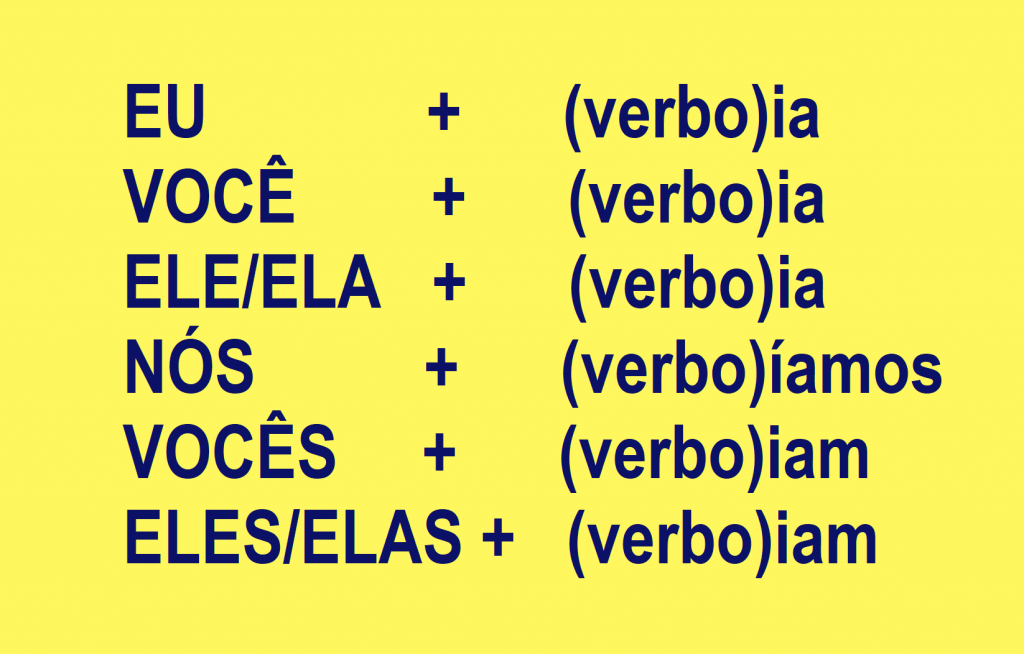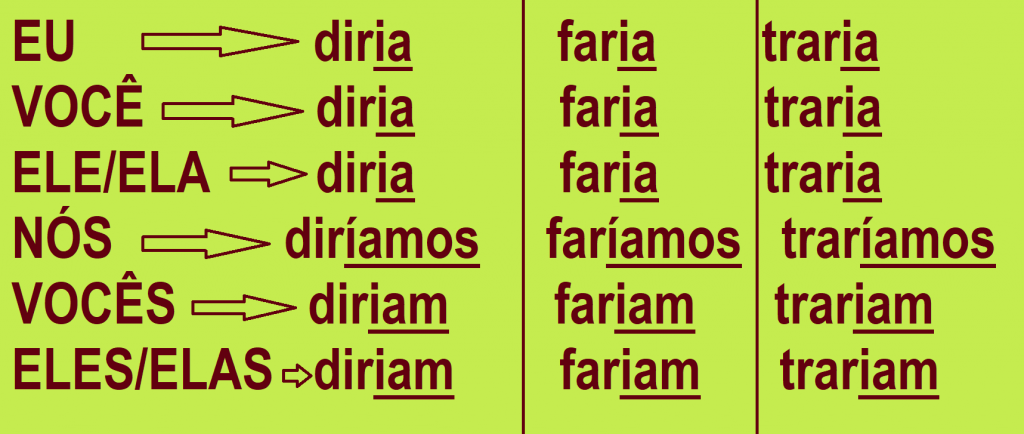[Time tenses in Portuguese] – O futuro do pretérito Posted by carol on Nov 19, 2017 in Grammar, Learning, Vocabulary
[Tempos verbais em Português]
Oi, pessoal! Hi guys!
Some posts ago, we started running our time tense series on the blog with the aim of getting our readers familiarized with our sometimes tricky grammar and teach you how to conjugate verbs correctly in Portuguese. Today’s topic will be the futuro do pretérito, which can be translated as future of the past and is used to indicate a hypothetic situation, a possibility that didn’t happen or won’t happen. Usually, these situations depend on a certain condition and can therefore be expressed by the modal verb would in English. See:
- Se eu tivesse dinheiro suficiente, eu me mudaria para Nova Iorque – If I had enough money, I would move to New York.
In the sentence above, moving to New York is a hypothetical situation. The person didn’t actually move to New York, and maybe won’t. That depends on the sentence’s subject having enough money. So, the futuro do pretérito generally goes along with a sentence that carries the idea of condition, cause or restraint.
Before we give you more examples, let’s first take a look at how to form the futuro do pretérito:

So, we should just add either ia, íamos or iam, according to the personal pronoun in the sentence, at the end of each verb in the infinitive. This is how it works, for example, with the verb ser (to be):
eu seria
você seria
ele/ela seria
nós seríamos
vocês seriam
eles/elas seriam
Attention, though! There are some irregular verbs that can be slightly different than the description above. The words dizer (to say), fazer (to do), and trazer (to bring) do not use the infinitive as a base:

Now, let’s examine some examples to look at the futuro do pretérito in context:
- Vitória gosta do namorado, mas não sabe se casaria com ele – Victoria likes her boyfriend, but she doesn’t know if she would marry him
- O que você faria no meu lugar? – What would you do in my place?
- Meu pai sairia do emprego dele se a economia não estivesse tão instável – My father would quit his job if the economy weren’t so unstable
- Eles levariam o cachorro na viagem, mas a companhia aérea não permitiu – They would take his dog on the trip, but airline didn’t allow him
- Onde você gostaria de fazer faculdade? – Where would you like to go to college?
- Se minha mãe deixasse, nós iríamos à praia todos os dias – If my mom let us, we would go to the beach every day
- Como vocês resolveriam esse problema? – How would you solve this problem?
- Muitas pessoas acreditaram que o mundo acabaria em 2012 – Many people believed that the world would end in 2012
- Eu te emprestaria dinheiro, mas estou endividado – I would lend you money, but I’m in debt
- Nós viajaríamos pro exterior mais vezes se tivéssemos tempo – We would travel abroad more often if we had the time
- Nem sei o que diria pra ele caso o encontrasse na rua – I don’t even know what I would say to him if I ran into him on the street
- Eles te ajudariam, mas você não quer ouvir ninguém – They would help you, but you won’t listen to anyone
- O táxi pegaria aquela rua se ela não estivesse interditada – The cab would take that street if it weren’t closed
- A gente andaria até lá, mas está chovendo muito – We would walk there, but it’s raining a lot
- Se ela não estivesse dirigindo, eu até beberia com vocês – If she wasn’t driving, she would drink with you
The song Por Você by Barão Vermelho is a great way to practice the futuro do pretérito and your listening skills! Check it out:
And here’s our previous post on verb tenses: http://bit.ly/2xsV0Kr

Build vocabulary, practice pronunciation, and more with Transparent Language Online. Available anytime, anywhere, on any device.



